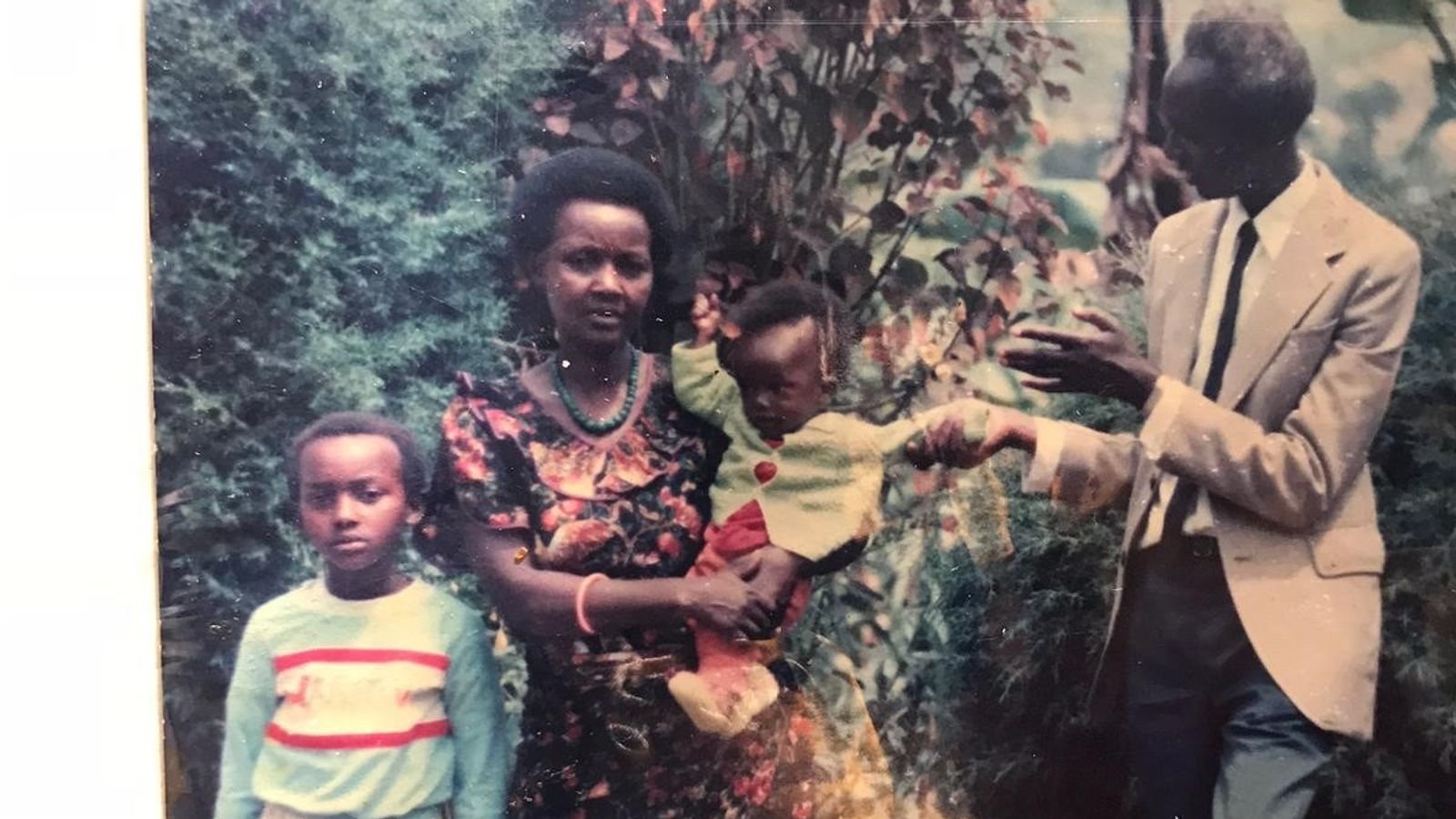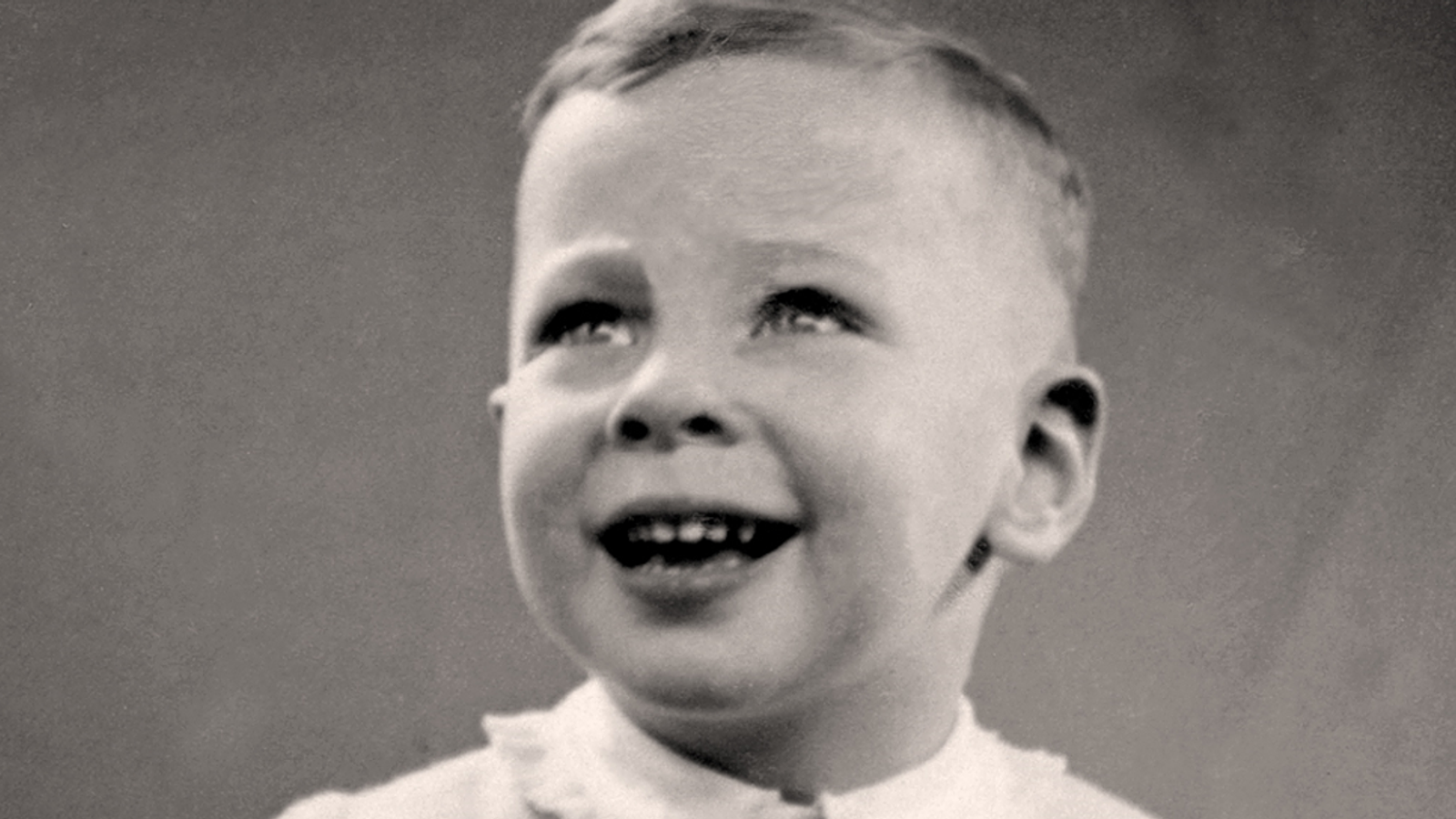In the decades since the Holocaust, the world has seen many more acts of genocide.
Britain's landmarks will be bathed in purple light this evening as people stop to remember the horrors of genocide.
Holocaust Memorial Day is dedicated to the millions of people, including six million Jews, who were murdered under Nazi rule during the Second World War and takes place on the anniversary of the liberation of Auschwitz concentration camp .
This year, however, its scope has been widened to include all victims of genocide.
The Chief Rabbi Ephraim Mirvis said that lessons have not been learnt from the horrors of the Holocaust, with the plight of Uighur Muslims in China being frighteningly similar to the genocide of Europe's Jews many decades ago.
He told Sky News: "In the immediate aftermath of the Holocaust there was enormous hope that the horrific nature of that suffering would change the world for the better forever - sadly, while it did happen in some respects, largely it hasn't happened - we haven't learnt the lessons.
Advertisement
"We have seen various genocides take place in Bosnia, Cambodia, Darfur, Rwanda - we're seeing the Rohingya people and Uighurs today - suffering and being persecuted in a horrific manner."
Rabbi Mirvis added: "I am an eternal optimist and the basic nature of human beings is a good one, however we are encountering an enormous amount of tragic hate crime, polarisation, instability which leads to people engaging in horrific acts of violence against others, and therefore we need to notice these signals - we need to take them seriously, we can't forever sit on our laurels and say everything will be alright."

Marie survived the 1994 Rwandan genocide when she was just 17 years old and said world leaders needed to be ready to take action to prevent similar atrocities.
She said: "How can the world watch people being massacred, and do nothing to stop it?
"I thought that after the Holocaust and the Rwanda genocide, they would have learned something and step in and help.
"We know genocide can be stopped if world leaders intervene. I feel like they sit and watch. It's painful to see."

Holocaust survivor Steven Frank has shared his experience with more than 800 schools across the country, something he believes is important to honour the memory of those who did not survive.
Mr Frank was nine in 1944 when he, his two brothers and his mother were at Theresienstadt, a disease-ridden camp that acted as a transit point for Jews being sent to the death camps of eastern Europe.
He credited his mother for keeping him alive, saying she had worked in the camp hospital's laundry and had secretly washed her children's clothes to protect them from typhus. She would also wash the clothes of other adults in return for extra rations for her children.
Mr Frank told Sky News: "When you're a child, you don't really think about the future. Are we going to be passed on to Auschwitz? Are you going to die of starvation? You don't really think about the gas chambers. You make the best with your fellow children that are there and you almost accept that is how it is."
Karen Pollock, chief executive of the Holocaust Educational Trust, said Holocaust survivors were an inspiration, especially during the coronavirus pandemic.
She told the PA news agency: "There has been real distress and pain and suffering felt in this country and around the world in this pandemic.
"But the survivors I spoke to - many who are shielding - are the epitome of strength and are getting on with it.
"Bearing in mind what they have experienced and suffered, they give words of wisdom to just keep going, we are going to get out of this."
Landmarks including Wembley Stadium, Cardiff Castle and the Tyne Bridge, will be lit in purple at 8pm and people can remember genocide victims by lighting a candle in their window - symbolising being a light in the darkness.















